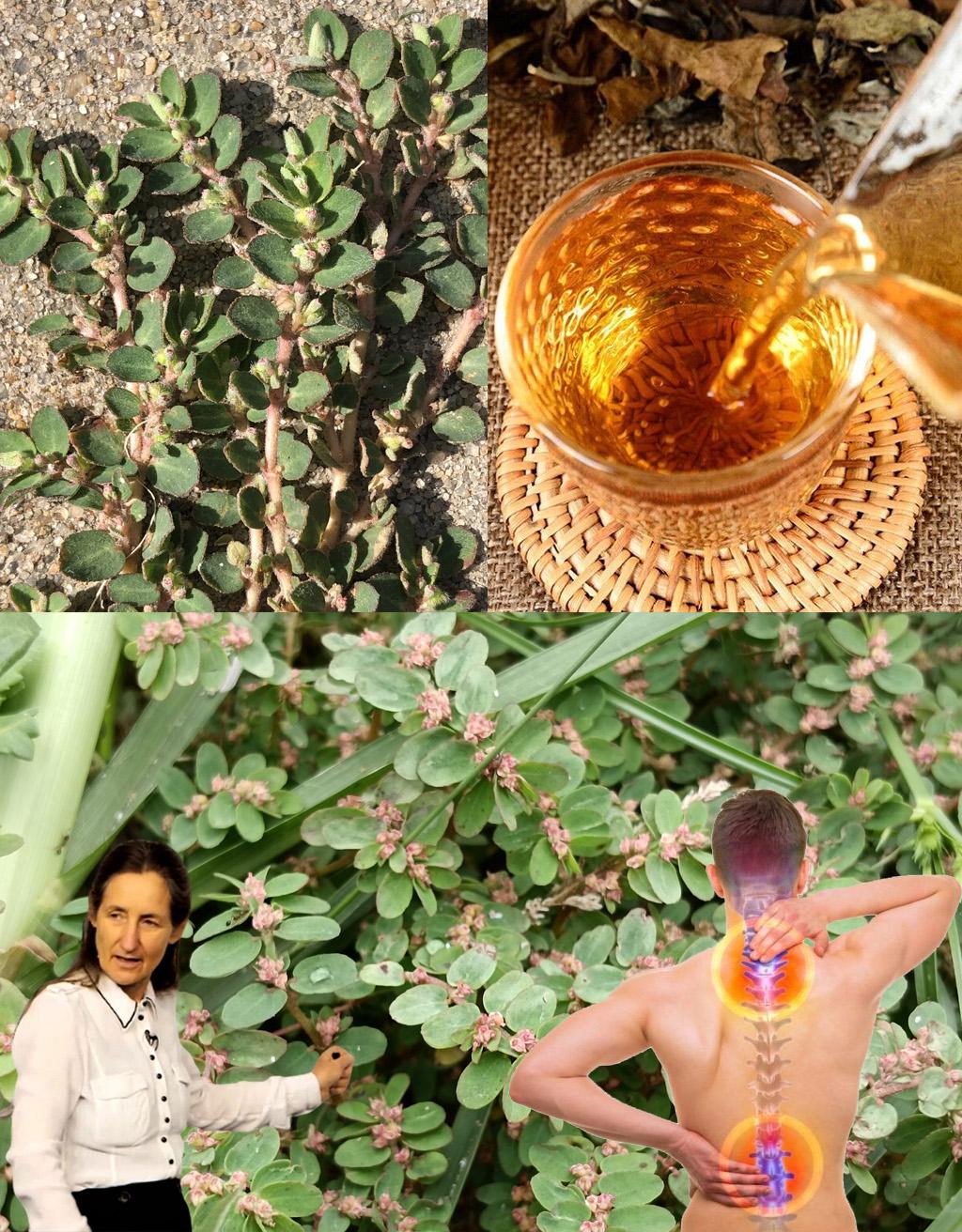Euphorbia prostrata, also known as prostrate spurge or sometimes referred to by its extract name, is a traditional medicinal herb that has been gaining significant attention in modern pharmacology.1 Although it may look like a common weed, this plant is rich in bioactive compounds that provide powerful anti-inflammatory, antioxidant, and venotonic effects.2
Its “hidden power” lies primarily in its documented efficacy in treating vascular and inflammatory conditions, particularly those of the lower digestive tract.3
Healing Secrets and Medicinal Compounds
The pharmacological power of Euphorbia prostrata comes from its unique combination of phytochemicals, which include:
Flavonoids (e.g., Apigenin, Luteolin, Quercetin): Provide the primary anti-inflammatory and antioxidant action, helping to stabilize blood vessels and reduce swelling.4
Tannins: Known for their astringent (tissue-shrinking) and hemostatic (bleeding-stopping) properties, which are crucial for treating bleeding.5
Phenolic Acids: Contribute to the plant’s overall antioxidant defense and support tissue healing.6
Primary Health Benefits and Uses
The vast majority of modern research and medicinal applications for Euphorbia prostrata focus on its efficacy in treating conditions involving inflamed blood vessels and tissue:
1. Hemorrhoids (Piles) and Anorectal Conditions7
This is the most well-studied and approved use of the extract in modern medicine, often marketed as a pharmaceutical agent.
Stops Bleeding:8 The tannins and flavonoids work together to strengthen the walls of engorged anal veins, reducing capillary permeability and arresting bleeding.9
Reduces Swelling and Pain: The potent anti-inflammatory action shrinks the hemorrhoidal mass, easing pain, itching (pruritus), and discomfort.10
Promotes Healing:11 It enhances tissue repair and healing of anal fissures and sores.12
2. Vascular and Circulatory Support
Strengthens Veins: The venotonic properties help improve venous tone and microcirculation, strengthening blood vessel walls throughout the body.13
Supports Varicose Veins: By strengthening vessels and improving blood flow, the extract is indicated for managing symptoms associated with varicose veins and Chronic Venous Insufficiency (CVI).14
3. Anti-Inflammatory and Analgesic Effects
Rheumatoid Arthritis (Preliminary): Preliminary animal studies suggest that the hydroalcoholic extract can significantly reduce inflammation and joint damage, showing potential for managing inflammatory conditions like arthritis.
General Pain Relief: Traditionally, the plant has been used for its general pain-relieving (analgesic)15 properties.
Traditional and Historical Uses
Historically, before clinical trials, Euphorbia prostrata was used in various folk medicine systems for:
Gastrointestinal Relief: Treating diarrhea, dysentery (severe diarrhea), and general stomachaches due to its astringent and antimicrobial effects.16
Wound Healing: Applied topically to cuts, sores, and skin irritations.17
Respiratory Issues: Treating conditions like asthma and bronchitis.18
Important Safety Considerations
Not a Weed for Casual Use: Do NOT consume the raw plant. The Euphorbia genus contains a caustic, poisonous milky sap (latex) that can cause skin irritation, vomiting, and be unsafe if ingested directly.19
Medical Guidance is Essential: The clinically proven benefits are typically associated with standardized extracts and commercially prepared tablets or ointments. Any internal use should be done under the supervision of a healthcare professional.
Contraindications: It is generally advised to avoid this herb if you are pregnant, breastfeeding, or have severe liver, kidney, or inflammatory bowel disorders.
